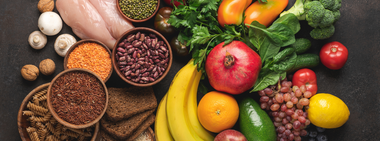Mark Bittman condemns ultra-processed food in new book

About “Animal, Vegetable, Junk: A History of Food, from Sustainable to Suicidal” by Mark Bittman
The first time I heard of Mark Bittman was many years ago when his book “How to Cook Everything Vegetarian” caught my eye at the bookstore and I bought it. It was only later that I learned what an influential food writer he was and what a huge following he had! And that he was the author of a whole slew of cookbooks. By the way, “How to Cook Everything Vegetarian” remains an excellent resource for anyone trying to eat better. It’s one of the cookbooks I go back to again and again.
This time, Bittman has produced Animal, Vegetable, Junk: A History of Food, from Sustainable to Suicidal, an epic treatise on the origins of the world’s current food situation, covering everything from soil and farming to the environmental impact of agriculture. But the number he was most shocked by? How much Americans rely on ultra-processed food. Over 50% of American’s calories come from junk food.
What Are Ultra-Processed Foods?
Bittman defines ultra-processed food as “engineered edible substances, barely recognizable as products of the earth...more akin to poison” than food. Pretty damning description. Unfortunately, given their biologic effects, also pretty true.
In his book, Bittman goes back to the 1950’s to explain the transformation at our dinner tables. By 1957, the American Heart Association was warning that diet appeared to be connected to plaque buildup in arteries. But, instead of looking at diet as a whole, the AHA blamed just one macronutrient -- fat -- leaving sugar out of the discussion. And guess what happened? Sugar intake went way up, especially after the advent of high fructose corn syrup in the 1970s.
Furthermore, as home cooking declined in the ‘70s, sodium consumption also skyrocketed along with the increased prevalence of fast food. (About 75% of the sodium we consume comes from ultra-processed foods.) No wonder Americans gained almost 20 pounds between 1970 and 2000...and got increasingly sicker.
But people didn’t just decide to stop cooking one day. Companies were employing food engineers to manipulate ingredients to maximize their “crave” factor, making fast food almost addictive.
In other words, as a population, we didn’t really stand a chance against the multi-billion dollar ultra-processed food industry cranking out cheap hyperpalatable food. Ultimate consequence, Bittman concludes: You need both time and money – and a palate adjustment - to eat healthy in America today.
Bringing Back Real Food
Bittman offers some solutions to the challenges in bringing back real food, but it goes way beyond personal choice. The root problems are systemic: Our entire system of agriculture needs to change, he says. Otherwise, the pervasiveness and cheap prices of junk food will take over.
When he talks to farmers in Iowa, they tell him it’s not profitable to grow anything other than corn or soybeans. After all, these crops are not only subsidized by the government -- as the basis for much of our junk food, they’re also in high demand. Part of the solution, Bittman concludes, would be to subsidize the production of real food: fruits, vegetables, nuts, seeds.
Step One Foods & Superior Ingredients
In other words, the ingredients we use to make Step One Foods. I’ve shared just how challenging it is to make a food convenient using only real ingredients. Making it affordable adds another layer of complexity. It’s one of the reasons why we deploy e-commerce to sell Step One: Instead of putting money into incentivizing grocery stores to carry our products, we put money into where it should be spent – on superior ingredients.
If foods such as ours were mass produced and subsidized by government, as Bittman suggests, we could offer our products at a fraction of the cost. And, we’d actually have competition: We’d no longer be the only clinically proven real-food convenience brand on the market. And nothing would make me happier! Because I would have finally accomplished what I set out to do.
After all, I didn’t start Step One to enrich myself. I’m a cardiologist. I do just fine. I started this company because someone had to do something to change the status quo. And make it just as easy to eat for health as other companies have made it to eat for disease. And I’m super proud to say that – thanks to you – we are doing it! In his latest book, Mark Bittman may be describing a food dystopia, but Step One Foods is the proof that there is hope.

Tested & Proven Results.
- Cardiologist formulated
- Supported by over 500 publications
- Clinically-proven, in a double-blind randomized trial with Mayo Clinic and The University of Manitoba
80% of participants lowered their cholesterol in just 30 days. With just two servings per day, Step One Foods offers a proven-effective way to naturally lower LDL (bad) cholesterol.
Get heart health tips and articles like this, delivered right to your email.
New articles every week.
You may also like...

Insulin Resistance, Prediabetes and Type 2 Diabetes. Part 4: Un-Doing It.

You don’t need to avoid foods with cholesterol…except for these



